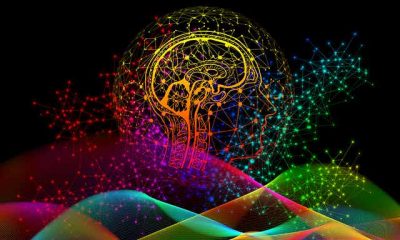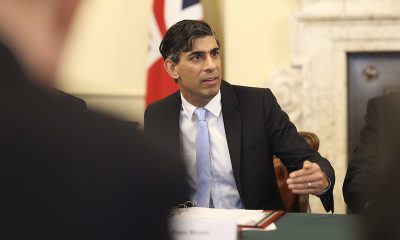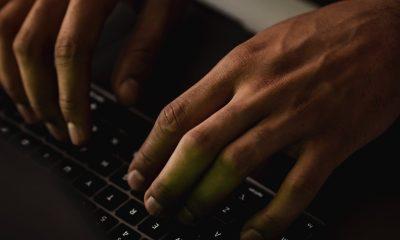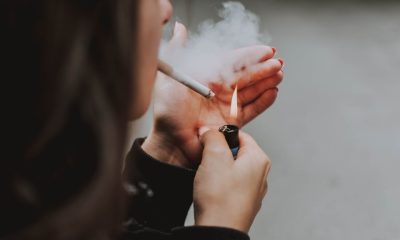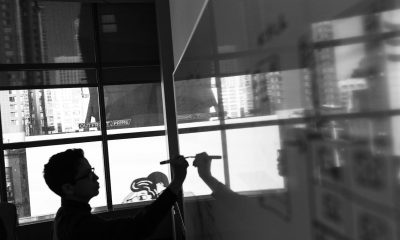News
What Article 23 means for the future of Hong Kong and its once vibrant pro-democracy movement
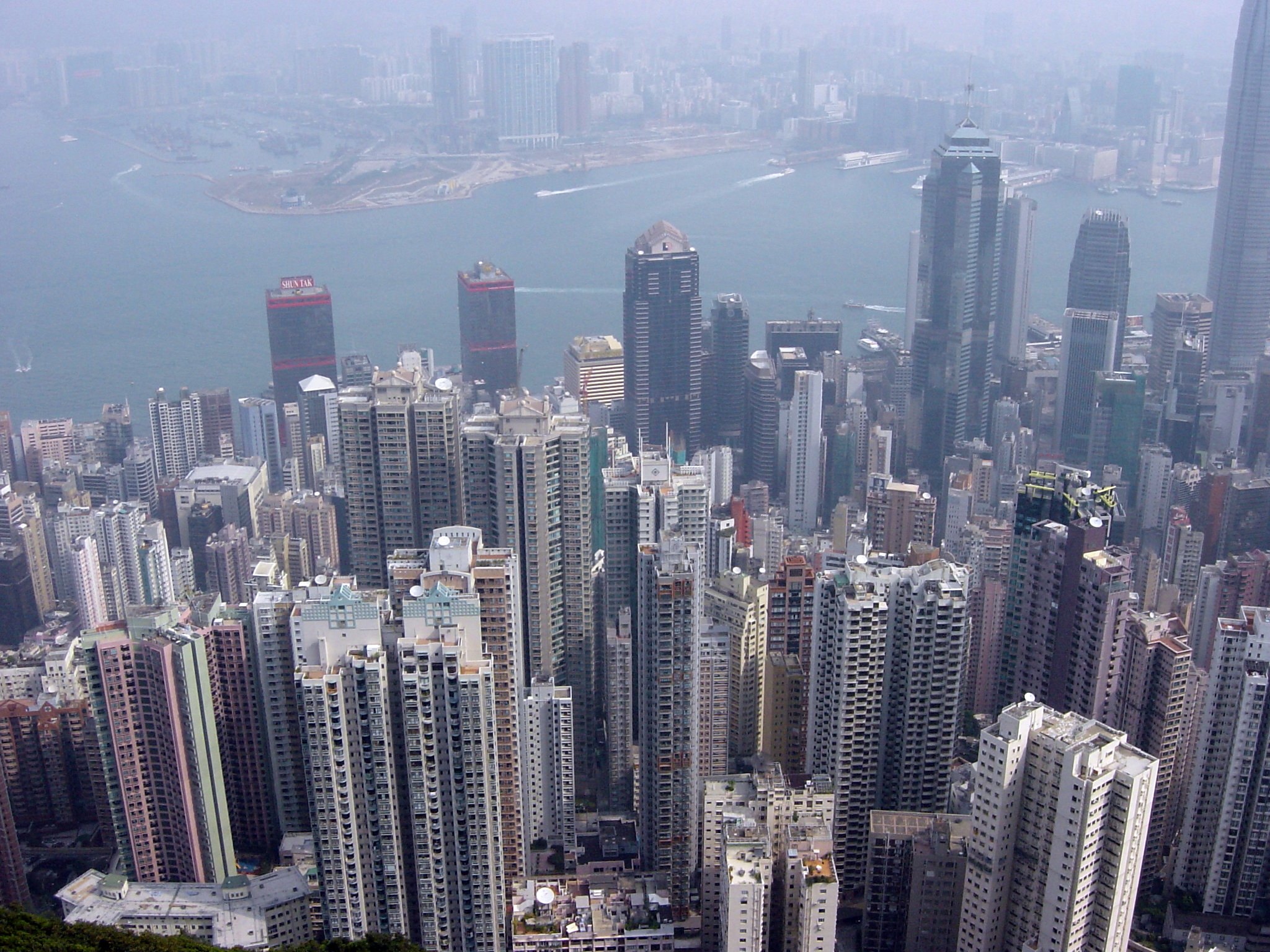
Hong Kong is increasingly becoming a security state. (Photo: Sandra Cindric/Flickr, CC BY-NC-ND 2.0 DEED)
Lawmakers in Hong Kong passed new security legislation on March 19, 2024, handing authorities in the semi-autonomous city-state further power to clamp down on dissent.
The law, under Article 23, has been decades in the making but was resisted for a long time by protesters who feared the legislation’s effect on civil liberties in Hong Kong, a special administrative region in China that has become increasingly under the thumb of Beijing.
To explain what the adoption of Article 23, which is set to be signed into law on March 23, 2024, means for the future of Hong Kong, The Conversation turned to Michael C. Davis, a law professor who taught constitutional law and human rights in Hong Kong for more than 30 years, most recently at the University of Hong Kong, and is the author of “Freedom Undone: The Assault on Liberal Values in Hong Kong.”
What is the background to Article 23?
Article 23 has a lengthy backstory. It is an article in the Basic Law of Hong Kong requiring the Hong Kong government to enact a local ordinance governing national security. The Basic Law itself is effectively the constitution of Hong Kong. Its promulgation by the central government was part of China’s obligation under the Sino-British Joint Declaration of 1984 – the treaty providing for Hong Kong’s return to China. Thirteen years later, in 1997, the territory was transferred to Chinese rule after more than a century under the British.
The Basic Law established a largely liberal constitutional order for post-handover Hong Kong. This included guarantees of the rule of law and basic freedoms, as well as a promise of ultimate universal suffrage. It was formally adopted by China’s National People’s Congress in 1990.
Basic Law Article 23 requires the Hong Kong government to “on its own” enact certain national security laws relating to treason, secession, sedition, subversion or theft of state secrets, and to regulate foreign organizations.
The Hong Kong government first put forward an Article 23 bill in 2003. But due to concerns over the implications for press and organizational freedoms, as well as expanded police powers, the proposed bill met with widespread opposition.
A group of seven leading lawyers and two legal academics, including myself, challenged the proposed bill in a collection of pamphlets that highlighted its deficiencies under international human rights standards. Meanwhile, half a million protesters took to the streets of Hong Kong.
In the face of such opposition and the consequent withdrawal of support by a leading pro-goverment party, the bill was withdrawn.
Rather than come forward with a replacement bill that would address human rights concerns, the government opted to let Article 23 languish for two decades.
Then, in 2020, Beijing imposed a national security law that gave Hong Kong authorities greater power. It led to the arrest and repression of opposition figures in Hong Kong, silencing the once-vibrant democracy movement.
With no effective opposition left and the threat of arrest for anyone who speaks out, the pro-Beijing Hong Kong government decided now was the time to ram through a more extreme version of the bill.
The Hong Kong government, with Beijing’s encouragement, was able to open up a short consultation on the new Article 23 legislative proposal with little or no opposition expressed.
The process was facilitated by a “patriots only” electoral system imposed by Beijing in 2021 that has tightened Beijing’s grip over the Hong Kong legislature, leading to unanimous support for the bill.
How will it affect civil liberties in Hong Kong?
In tandem with the 2020 Beijing-imposed national security law, the new Article 23 legislation will have a dramatic effect on civil liberties.
The national security law – with its vague provisions on secession, subversion, terrorism and collusion – has already been used along with a colonial-era sedition law to arrest and silence dissent in Hong Kong. Many opposition figures are in prison or have fled into exile. And those with dissenting views who remain have largely gone silent.
The draft bill expands on the national security law in key areas: the stealing of state secrets, insurrection, sabotage and external interference in Hong Kong.
It essentially embraces mainland China’s comprehensive national security regime, which has long focused on suppressing internal opposition, targeting numerous areas of local civil life, impacting organizational, press and academic freedoms.
Included in Article 23 is the adoption of the mainland’s broad definition of “state secrets,” which can even include reporting or writing on social and economic development policies.
The legislation expands the potential use of incarceration with both lengthy sentences upon conviction and longer holding of suspects before trial.
Article 23 also intensifies scrutiny of “foreign influence” – making working with outsiders risky for Hong Kong citizens.
The draft legislation speaks disparagingly of activism under the guises of fighting for or monitoring human rights and is critical of “so-called” nongovernmental organizations.
All of this makes working with or supporting international human rights organizations perilous.
In short, in the space of two decades, Hong Kong’s liberal constitutional order has been transformed into a national security order with weak or no protections for basic freedoms.
What is the wider context to Article 23?
To understand this legislation, one must appreciate the Chinese Communist Party’s deep hostility to liberal values and institutions, such as the rule of law, civil liberties, independent courts, a free press and public accountability. Such liberal ideas are viewed as an existential threat to party rule.
This mindset has led to a dramatic expansion of the party’s national security agenda under current leader Xi Jinping.
Beijing has emphasized economic development in recent decades, staking its legitimacy on economic growth – betting that people will care more about their standard of living than about political freedoms. But as growth declines, leaders’ concerns about security and dissent have grown, placing such security even above economic development.
This has led to the comprehensive national security concept now being imposed on Hong Kong.
With Beijing advancing an agenda that casts liberal, democratic ideas as a threat, a liberal Hong Kong on the country’s border became impossible for the Chinese Communist Party to ignore.
Widespread protests in Hong Kong in 2019 both exacerbated this concern and offered an opportunity for Beijing to address the perceived threat under the claim that protesters were advancing a so-called “color revolution.”
Having long nurtured its loyalist camp to rule Hong Kong, these loyal officials became the instrument of the crackdown.
What does the lack of protest now say about the pro-democracy movement?
It tells us that the mainland national security regime imposed on Hong Kong has effectively intimidated the society, especially those with opposition views, into silence.
Hong Kong’s pro-democratic camp had historically enjoyed majority support, at around 60% of the voters in the direct elections that were allowed for half of the legislative seats.
The introduction of loyalists-only elections led to a dramatically reduced turnout.
This and emigration patterns tend to show that the majority of Hong Kong people do not support this new illiberal order.
Be that as it may, with most of their pro-democratic leaders either in jail or exile, they dare not speak out against the new national security regime.![]()
![]()
Michael C. Davis, Professor of Law and International Affairs, O.P. Jindal Global University
This article is republished from The Conversation under a Creative Commons license. Read the original article.


